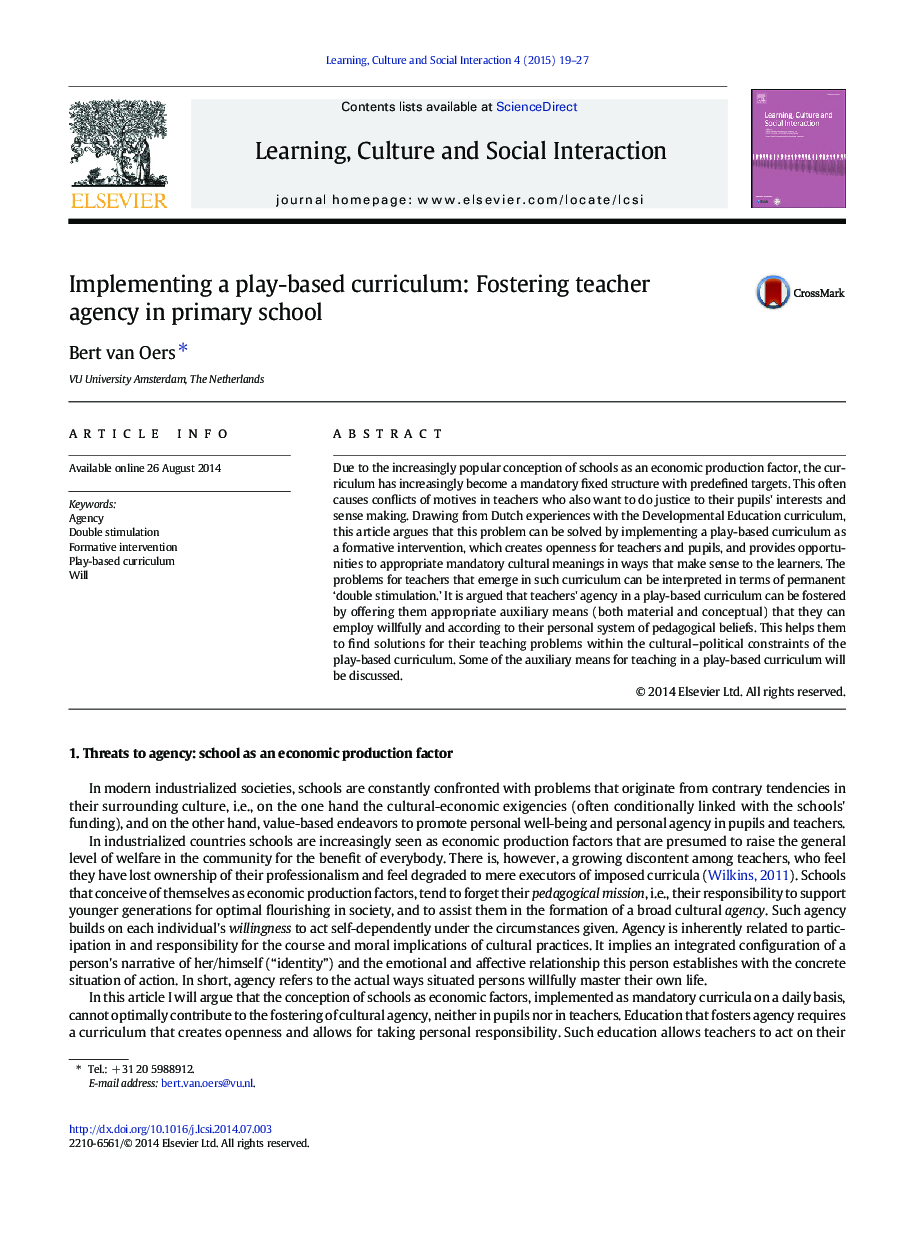| Article ID | Journal | Published Year | Pages | File Type |
|---|---|---|---|---|
| 364343 | Learning, Culture and Social Interaction | 2015 | 9 Pages |
Due to the increasingly popular conception of schools as an economic production factor, the curriculum has increasingly become a mandatory fixed structure with predefined targets. This often causes conflicts of motives in teachers who also want to do justice to their pupils' interests and sense making. Drawing from Dutch experiences with the Developmental Education curriculum, this article argues that this problem can be solved by implementing a play-based curriculum as a formative intervention, which creates openness for teachers and pupils, and provides opportunities to appropriate mandatory cultural meanings in ways that make sense to the learners. The problems for teachers that emerge in such curriculum can be interpreted in terms of permanent ‘double stimulation.’ It is argued that teachers' agency in a play-based curriculum can be fostered by offering them appropriate auxiliary means (both material and conceptual) that they can employ willfully and according to their personal system of pedagogical beliefs. This helps them to find solutions for their teaching problems within the cultural–political constraints of the play-based curriculum. Some of the auxiliary means for teaching in a play-based curriculum will be discussed.
